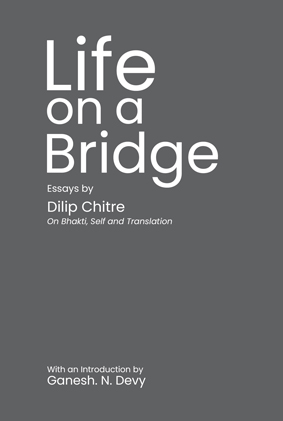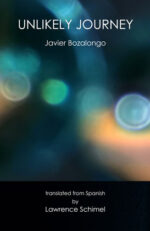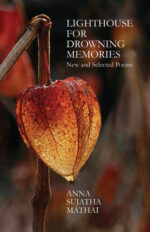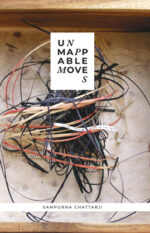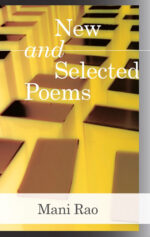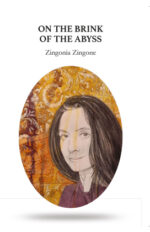About the Book
The essays and transcripts of Dilip Chitre brought together here are valuable in themselves as they offer a commentary on the Indian sense of tradition and the contemporary attitudes to literature. Every piece is of interest in itself. But, their greater worth lies in that they articulate the perspective of one of our most admirable poets on many issues that mattered to him. Taken together, they provide a basis for fathoming his poetry and should help us in making a more nuanced sense of it. Chitre was a fascinating poet, but it is not possible to say that his poetry was easily accessible to most of his readers. Like W. B. Yeats, he weaves in his poems experiences that arise in a given moment (such as the felling of a tree in his father’s house) together with many layers of timeless human quests and anxieties. He brings together silence and euphoria in an imagistic mix that is difficult to name with any precision. It is hence that this
volume of his comments, essays, lectures and other texts should be of importance for the lovers of Dilip Chitre’s literary works.
– Ganesh N Devy
Related products
-
Variations on Silence
$16About the Book
Throughout Variations on Silence, Nadia Mifsud draws us into intimate scenes and gestures,
as if overhearing lovers mid-conversation. The central figure – almost mythic in scale – is
silence itself, which Mifsud imbues with weight, texture, physical presence. Silence shelters,
stirs, shakes, unwinds, “tastes / of red soil and conifer.” Miriam Calleja’s translation conveys
the ache and longing of that silence with a sensual clarity rare in English. A fabulous book.
– John Wall Barger, The Elephant of SilenceAs Dante said, love is what moves the sun and the other stars – but it is also what flows
through all things, binding them together. This is what breathes in the silences – namely, in
the poems – of Nadia Mifsud : a listening rooted in love, which through love transforms and
reintegrates lovers into the cosmos, restoring the world to something deeply connected to
our humanity. Calleja’s admirable translation – herself a poet – captures this dynamic with
striking clarity and preserves it as the central energy of the work. The encounter between
these two poets ultimately offers us a book of poetry, not merely a book of poems – I repeat:
a cohesive and coherent work, held together by a vision both profound and vast. Ovid’s
Metamorphoses, Rilke’s Duino Elegies… The poetry found in this book is capable of
traversing time and resisting it, of crossing space to bind us – irrevocably – to this cosmos,
and in that bond, to reveal the secret of life.– Pietro Federico, Most of the Stars
Every verb in Nadia Mifsud's work shimmers, echoes, and rappels down the cliffside of a
stanza. Valences expand through repetition; "waves like jaws" locate the oceanic motion. One physically hears and feels the island of Malta in the tension between the isolation,
refrain, and the sea returning to shore, empty-handed. Miriam Calleja's attentive translation brings these affects and "sea-scented places" into English without forsaking the resonances and echoes of "cockleshells" past. Variations on Silence touches the hem where displacement circles the idea of place and results in lyric. The mode is modern; the echoes are ancient; the book is irresistible.– Alina Stefanescu, My Heresies
-
UNLIKELY JOURNEY
$12About the Book
As happens on all trips, in the pages of this book we find unforeseen questions and unexpected landscapes. These verses are transparent because they speak to us not about what is intuited or remembered but what is seen while trying to establish order, specify limits, and vanquish shadows.
-
Lighthouse for drowning memories
$16About the Book
It’s in Delhi, dystopian as ever, that Sujatha Mathai continues to live and write today, and I fear her words—“I cannot save my city / Against the degradation of dust”—will echo long into the future, acquiring new meanings. And yet I’m so happy to read a new book of hers, to see that she’s still writing her poems sharp and clear as glass, full of sympathy for the world and those who suffer. It makes me feel that literature survives and helps us survive, that it carries more continuity than we think.
— Vivek Narayanan
Assistant Professor, Department of English, George Mason University -
Unmappable Moves
$20About the Book
Reading Unmappable Moves, I had the strangest sensation of time expanding and closing in. These are taut, enigmatic poems—lightning flashes with bright, insistent heartbeats.—TISHANI DOSHILethal tales of sex and death that left me pining for more of Sampurna Chattarji’s mysterious lyric inventions.—JEET THAYIL -
The Ruined Millionaire: New Selected Poems 2002–2022
$0About the Book
“Mazer, along with his northeastern companions Nikolayev and Kapovich – of the further norths and further easts – make jubilant singing verse as they step through the western wreckage. This must be remembered, say the only poets who’ll matter, so I must write in the ways of memory.” — Glyn Maxwell, from the Preface
“These poems are like trees that contain and protect and conceal themselves from themselves. Each wears a rough coat over the sap, the heart, the rainwater and scars. In so many ways the bark of a tree is a scroll with its messages written out of and into its experience. Mazer’s poems know they are beautiful the way the wooden rills on a tree are elegant, made of history, of romance and pride.” — Fanny Howe
“Ben Mazer is a true inheritor of John Ashbery’s legacy, specifically the Ashbery of Self-Portrait in a Convex Mirror. Like that classic of American poetry, The Ruined Millionaire ironically also suits the contemporary European scene. In translation, Mazer’s new selected poems could just as easily fit on a shelf of the best contemporary Polish or French poetry. Anglophone readers are lucky to have them available to us first.” — John Hennessy
“When Shakespeare meets Ben Mazer at the Mermaid Tavern he will hand Ben this book. ‘Shakespherian’ the Bard will say. ‘And more.’ Another poet at the end of the bar will nod and remark ‘There are No Dry Salvages there.’ Then Will will read ‘Monsieur Barbary Brecht’ to all and they will all be surprised by joy. You will be too when you read these poems: matchless, immortal, and, like all great poetry, unexplainable.” — Joe Green
“‘Start with the rain’: there is a great deal of rain in Ben Mazer’s poetry, often in darkness and whipped by wind. One might speak of a poetic of the torrential, given the irresistible forward sweep of his poems as they move through overlapping territories of memory and history and dream. He advances through the damp corridors of a foundered world, in which the debris (and the vocabulary and the contentions) of centuries has piled up, and the voices of poets and movie actors and a multitude of others re-echo like displaced wraiths. There are constant surprises—cascades of rhyme and apparitions from a history become ghostly, like ‘Caligari, tortured in oblong angles, / beer garden, mental institute, who mangles / memory’—but no matter how allusive or wildly improvisational, no matter how extraordinarily profuse in their range of reference, the lines are never digressive. The past woven into their ‘deep syntax / of auditory visuality’ is a living past: they exist in an urgent present, whether ‘driving thus into the heart of pain’ or momentarily perceiving Fred Astaire and Ginger Rogers, in the last reel of Top Hat, ‘looming and large as any of the designs of God.’ Whatever elements become part of this poetry are distilled with sustained intensity into one substance, a music appropriate to ‘that hour / when memory settles / on the evening / darkness its liquid / history of masks.'” — Geoffrey O’Brien“‘In a soup you never know / what you’ll run into next. All the ingredients repeat, / but you encounter some of them for the first time.’ This is the savory gumbo out of which Ben Mazer has made his poems. At times maddeningly elliptical, at times this ‘ellipticality’ is what moves or tickles or interests you most. The editor of Delmore Schwartz, Hart Crane, and John Crowe Ransom (among others) is himself a poet very much worth savoring.” — Lloyd Schwartz, Pulitzer Prize-winning critic and author of Who’s on First? New and Selected Poems.
“What we can’t think to say, what we don’t know how to say, whether of experience cosmic or minute, he says. The white picket fence that is always intense, the little house between the two big ones, what a movie is. His comparisons are wildly accurate but they aren’t really comparisons at all. They come from similar and related as easily as far away and disparate places or thoughts, which is remarkable for its multidimensionality of seeing. His metaphors are never arbitrary or half convincing, but come from the unconscious. And the sounds fit the sense—there are lines to rival Yeats. And he can sustain a long poem without lagging. Only one who feels every nuance, who suffers intense emotions could write such great poems.” — Ruth Lepson
“The year’s most essential book of poetry.” — Michael Londra in SpoKe
-
ON THE BRINK OF THE ABYSS
$16About the Book
The fascinating aspect of Zingonia’s poem is the paradoxical unity of the two qualitatively different domains of the earthly and the spiritual. The two are interfluent. Though the culmination of the poem is in the divine love, I prefer not to read the poem in a linear way like in linear spiritual narratives such as Pilgrim’s Progress or Divina Comedia. Here, as in TS Eliot’s Four Quartets, past and future always move to the end – what is always present – and the end is in the beginning. It is pointless to trace the narrative or paraphrase Zingonia’s On the Brink of Abyss – a series of epiphanic moments of poetry at its intensest. The only justice a reader and critic can do to this wonder of a poem is to resonate with those ineffable epiphanies that have somehow slipped into language. What more can I do except to share with readers the way I
resonate with those precious moments of epiphanic agony and ecstasy. And congratulate Zingonia on this rare achievement which has no parallel in any poetry I know of.
– H.S. Shivaprakash
Poet, playwright, literary scholar and translator

